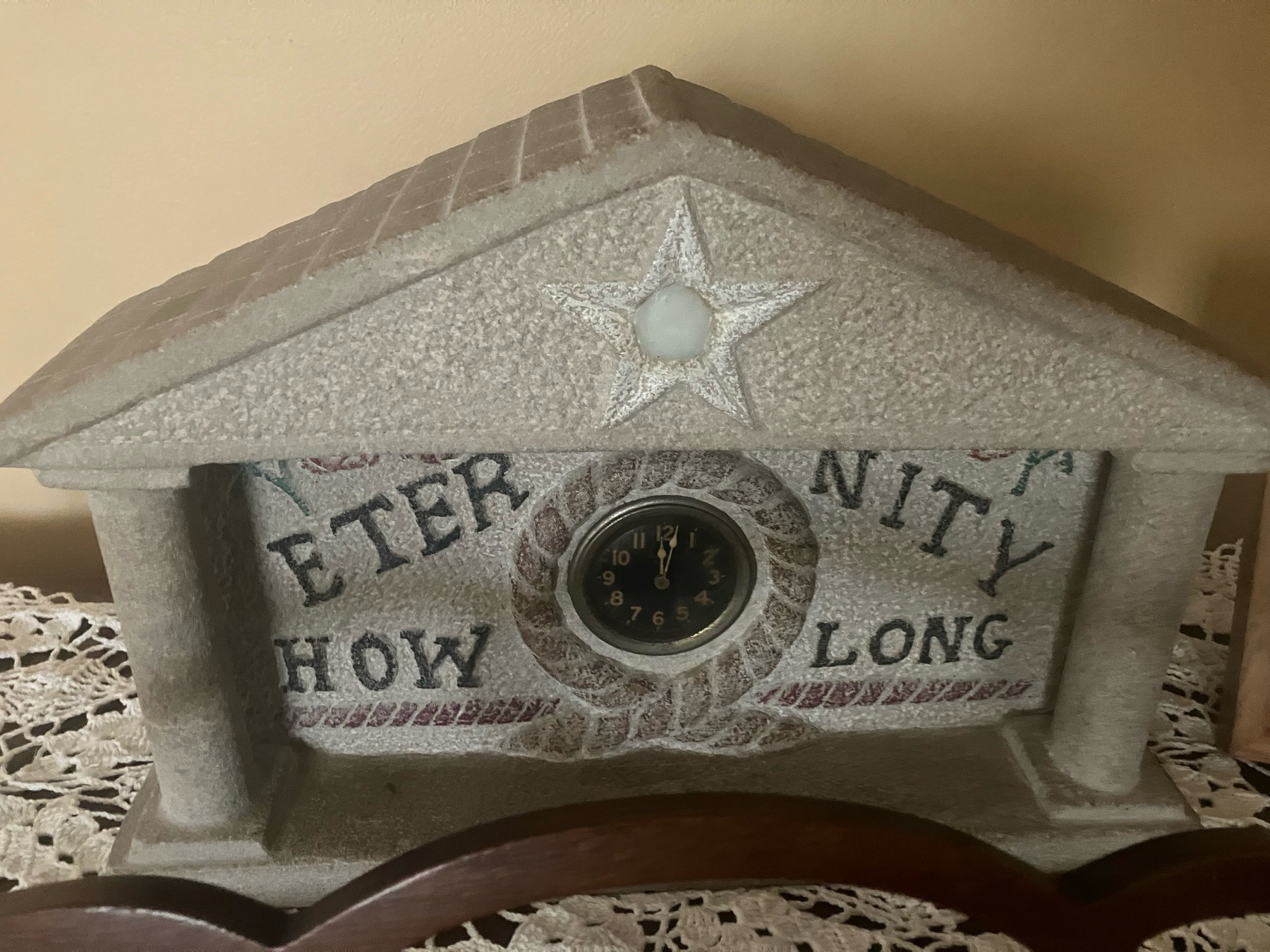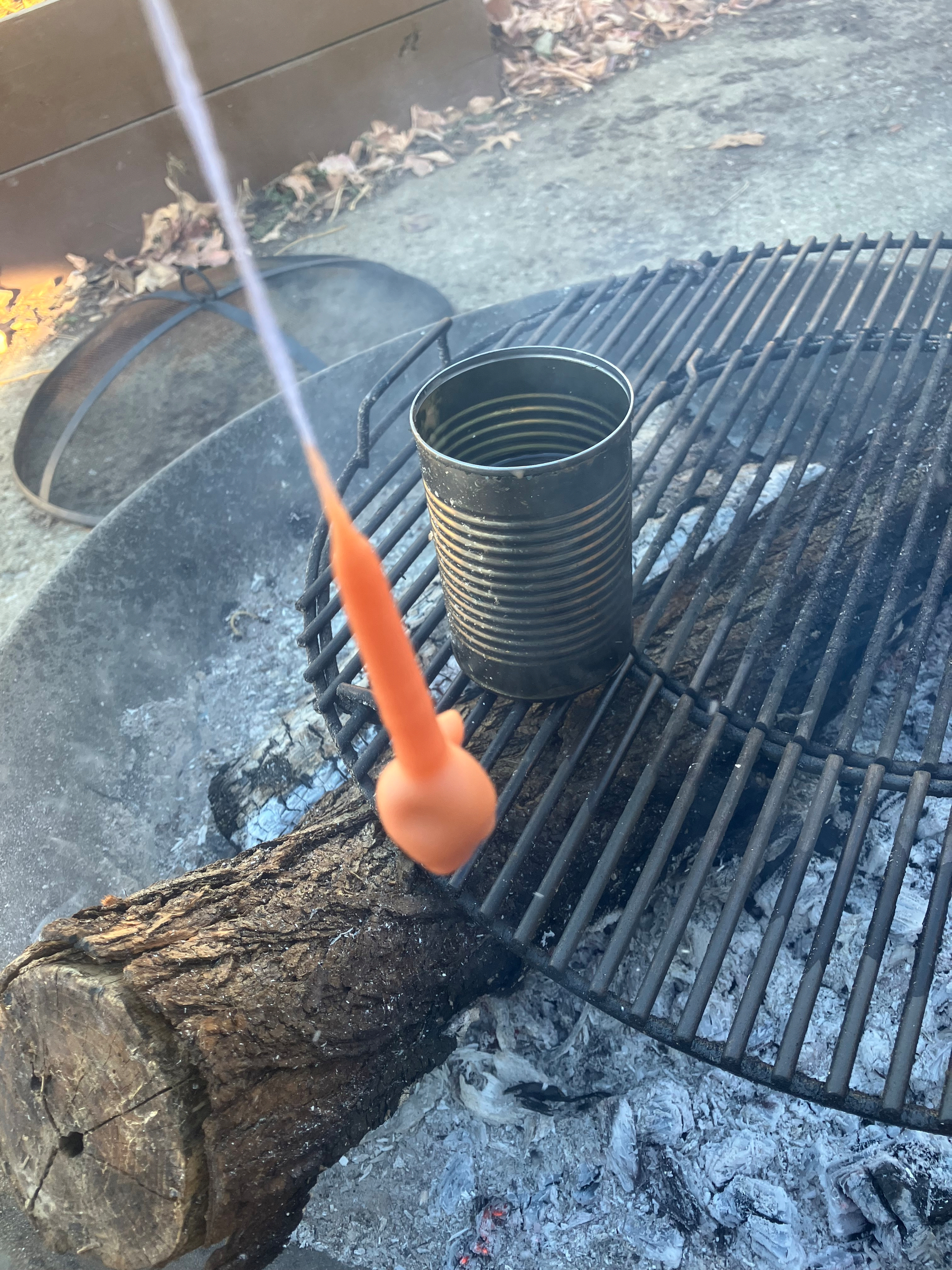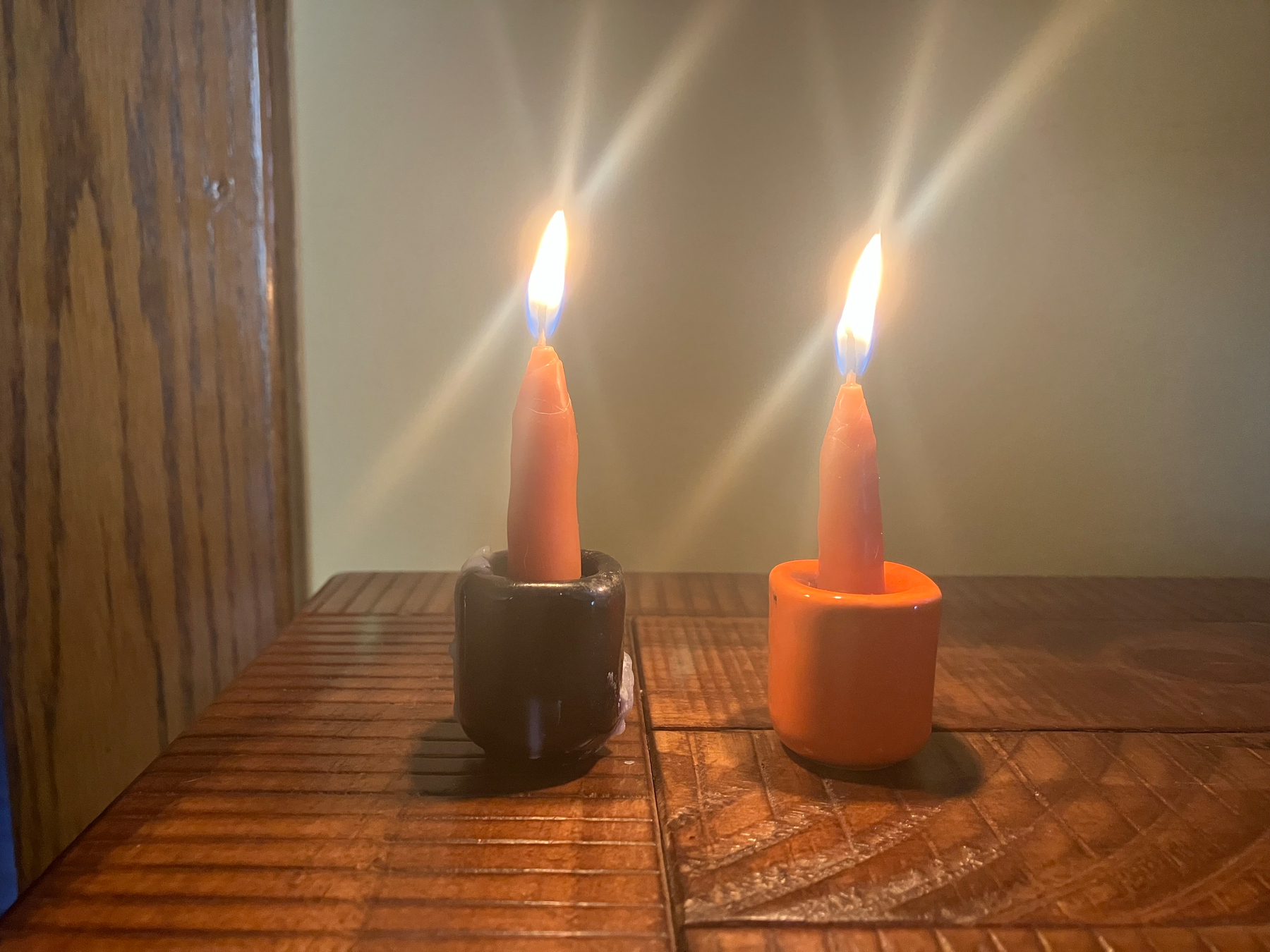Rachel’s parents have a really cool limestone clock carved by Rachel’s great-grandfather. The timepiece is from a car of the era. Family lore says he used a hammer and screwdriver because it’s the only tools he had.

Rachel’s parents have a really cool limestone clock carved by Rachel’s great-grandfather. The timepiece is from a car of the era. Family lore says he used a hammer and screwdriver because it’s the only tools he had.

One of the good things I learned from my upbringing in the Holiness church: going it alone. I keep running across people looking for validation in their spiritual path. I get it. We all love validation. We want someone to help us along, encourage us, tell us we’re not crazy. At the same time, there’s a valuable lesson in “I’m gonna pray if I pray by myself; I’m gonna stand if I have to stand alone.
All week long I’ve been looking forward to organizing and cleaning the garage today. So what are your “boring old man” weekend plans?
This video series on Suzanne Lupien just keeps on giving. The latest episode is about her half-century of spoon carving.
Whoever designed the battery placement on a 2014 Chevy Malibu is a malicious, hate-filled demon. Just look at how much has to be removed to get to the battery! Two and a half hours and $300 later, my daughter’s car battery has been replaced.
Reminding myself after failure: Having An Opinion is not your task. Your task is small, local, centered on your family. Your task is to live in right relationship, work faithfully, and do what good you can. Use fewer and fewer words, until they become unnecessary.
Finished reading Marce Catlett: The Force of a Story by Wendell Berry. Fictionalized account of a formative event in the Berry family, and its impact over generations. Do you really need me to tell you it’s wonderful? 📚
From Uncle Wendell’s latest: Since his return, Andy has lived his story and his family’s in that place for sixty years. The place as it was when he returned is no more. It is now, to him, a strange country with a familiar story surviving in it. Port William’s fatal mistake was its failure to value itself at the rate of its affection for itself. Gradually, it had learned to value itself as outsiders—as the nation–valued it: as a “no-where place,” a place at the end of the wrong direction.
Test run at hand-dipped candles, using old candle nubs and a can. Obviously greater volume of wax will be needed for proper length candles but I’d call the test successful.


So this stuff is crazy, obviously. But could it not be the case that we’re in a fad period and everyone will be slightly embarrassed by it in a few years? Don’t people mostly return to a sane baseline? That’s not to say it won’t cause real destruction, but does it seem likely to redefine humanity?